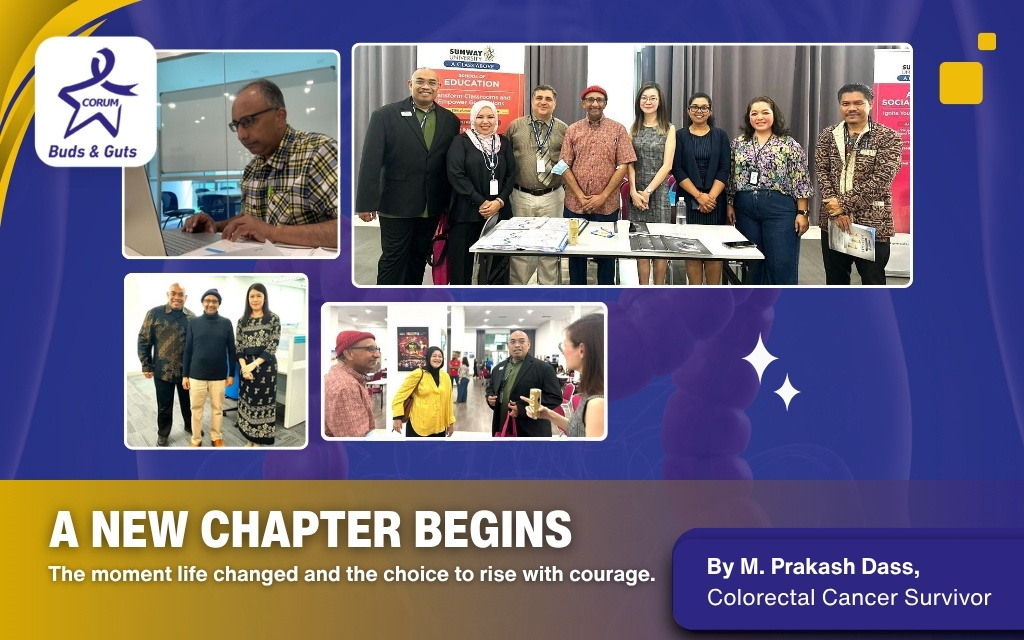
Part 1 – The Turning Point
At 61, life was supposed to be gentler. Most people at my age would be planning for retirement, spending more time with family, perhaps pursuing long-delayed hobbies or travelling to places that had only once existed on their bucket list. I, too, imagined that this chapter of my life would slow down, to have a time to enjoy the fruits of decades spent building a career and nurturing relationships. But in early 2025, life decided otherwise.
When I was diagnosed with Stage 3 rectal cancer, everything changed. Suddenly, my days were not defined by work or leisure, but by hospital visits, chemotherapy cycles, radiation sessions, pain management, and endless medical consultations. Overnight, the structure of life as I knew it vanished. I was left facing not just physical suffering, but also a heavy cloud of anxiety, which surrounded my mind with worries about my health, the risks of surgery, the prospects of recovery, and the uncertainty of what lay ahead.
Cancer is not only an illness of the body; it’s a battle waged in the mind. And I soon realised that if I wanted to survive, I couldn’t let the disease occupy my thoughts completely. I had to give my mind a reason to move forward and to anchor itself in something life-affirming and purposeful. That realisation became the turning point of my recovery.
During the long and lonely nights following diagnosis, I reflected deeply on what gave my life meaning. I understood that my physical body would have limitations during treatment, but my mind, that vast, energetic engine of curiosity and will, could still flourish. If I could empower the mind, perhaps the body would follow.
Out of this thought grew an idea that at first seemed impractical, even irrational: to return to university at the age of 61 while undergoing cancer treatment. Though my body was slowing down, my mind was restless. I needed intellectual stimulation, an outlet to transform fear into focus and pain into purpose.
Eventually, that conviction materialised when I enrolled in the Master of Education (Open and Distance Learning) programme at Sunway University in July 2025. It was not an easy decision. After all, my last academic pursuit, an MSc in Human Resource Management took place more than four decades ago, following bachelor’s degrees in economics and business administration. The notion of returning to “school” after such a long hiatus, especially while facing the physical toll of cancer treatments, was daunting.
But something inside me insisted that the mind needed nourishment as much as the body did for healing. While my surgeon and oncologist worked with removing the tumour, administering oxaliplatin, capecitabine, and addressing other physical side-effects and chemical imbalances, I decided to work on strengthening my mental muscles and to turn my brain into my ally rather than my victim.
Looking back on those early, uncertain days, I am reminded that survival is shaped not only by the medicines prescribed, but by the meaning we find amid adversity. The choice to return to learning wasn’t simply about academic achievement, it was about finding a foothold in the chaos, a way to transform fear into growth and pain into possibility. That decision not only sustained my mind through the harsh realities of treatment but gradually fostered a sense of healing that ran deeper than physical recovery. As my journey continued, I discovered that learning itself could be a lifeline, an act of self-renewal and peace when everything familiar had been stripped away. In Part 2, I will share how embracing learning became central to my healing process, shaping a new outlook and anchoring me with hope for each day ahead.
